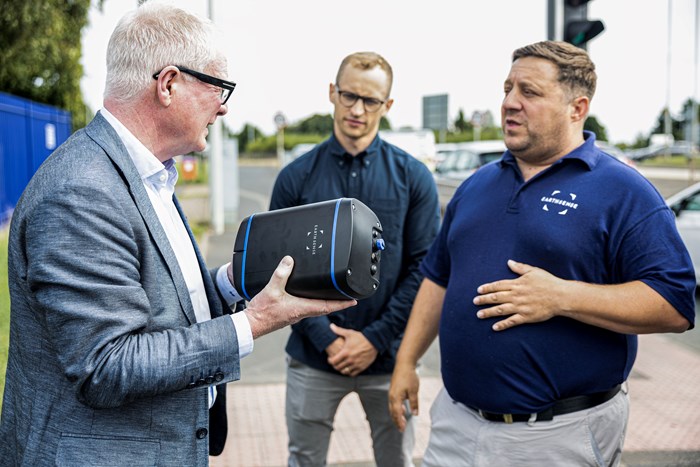New website helps residents and businesses track pollution in real time
Published: Thursday 20 Feb 2025
A ground-breaking new website has just launched giving residents and businesses the chance to see for themselves just how clean the air is in their neighbourhood.
Near-live air quality data is being collected by the largest hi-tech network of sensors outside of London and made publicly available at people’s fingertips online at cleanair.wmca.org.uk.
The sensors - funded with government money secured by the West Midlands Combined Authority (WMCA) - have been installed outside homes, schools, businesses, hospitals and sports centres right across the region.
They are providing some of the most accurate near real time data yet on levels of microscopic particles from wood burners, vehicle tyres, building sites and factories.
These tiny particulates can exacerbate long term health conditions, including asthma, coronary heart disease, stroke, and lung cancer.
The sensors are also tracking levels of nitrogen dioxide from roads and industrial sites.
Accessing this data will give local people a greater insight into pollution hotspots so they can take their own actions to improve their health and quality of life.

Mayor Richard Parker at the install of the air quality sensors with Tim Dexter from Asthma and Lung UK, and Owen Gardener from EarthSense
Mayor Richard Parker said: “Too many people are suffering the effects of air pollution. That has to change and it’s going to take bold actions from everyone.
“I’m already investing to make homes healthier, and businesses cleaner and greener. And we are innovating to move to a zero-emission public transport network.
“Now we have one of the country’s largest air quality sensor networks. I’ve taken action to give people the information they need to react and provide a brighter, healthier future for everyone."
The West Midlands has some of the highest air pollution levels in the country which are responsible for more than 2,000 premature deaths every year.
Alongside the sensor network, residents, businesses and community services providers are taking part in citizen science projects, led by the WMCA, to help them understand how simple changes to their daily routines and working practices can help improve air quality.
Monitoring is taking place in homes with log burners and at construction sites, alongside work with pharmacists to help people with health conditions reduce their exposure to poor air quality and choose greener and more sustainable travel options.
A group of residents in Walsall have been wearing special backpacks with sensors to record the air quality they encounter during their normal daily lives.
Charlotte Gough, who took part in the trial, said: “I wanted to understand how air quality is impacting my daily life, and I was quite surprised by the results. The standout bit of data was the poor air quality I was exposed to when exercising - either due to lack of ventilation or being near busy roads.
“It’s definitely inspired me to make some changes to my own routines, like travelling actively to visits or appointments locally rather than taking my car. But when I do need to use the car, I’m now checking the tyres regularly, keeping my windows closed and using air recirculation, and also turning the engine off if I’m parked or stuck in traffic for long periods of time.”

Charlotte Gough, from Walsall, has been taking part in the behaviour change trials led by the WMCA as part of a wide-ranging programme of work to improve air quality.
Improving lives with better quality air is at the centre of measures within the first West Midlands-wide Air Quality Framework.
This long-term plan sets out measures that must be considered by the WMCA, local authorities, central government, businesses and local communities to accelerate improvements to air quality on a regional scale.
The air quality sensors are being supplied, installed and monitored by EarthSense, which specialises in environmental monitoring and modelling of air pollution data to enable public and private sectors to visualise and manage air quality challenges.
Owen Gardner, chief operating officer at EarthSense, said: “We are proud to be delivering a hyperlocal network of advanced air quality monitoring sensors to WMCA, providing real-time pollution insights along with fully quality controlled and quality assured data outputs via the interactive public facing engagement portal.
“The initiative aims to support data-driven decision-making for cleaner, healthier communities. This partnership reinforces EarthSense’s commitment to tackling air pollution with cutting-edge sensor technology and modelling.”
Find out more about how to access the data online and actions to improve air quality on the WMCA website.
Further enquiries
For all other enquiries from members of the public go to our contact us page: https://www.wmca.org.uk/contact-us/